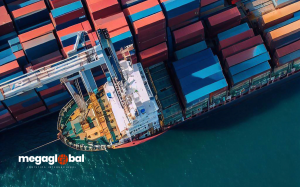Protect your maritime operations by understanding the ISPS protocol.
The ISPS Code (International Ship and Port Facility Security Code) is a key regulation in the maritime sector. As a logistics manager, you know it’s crucial to understand this code to ensure the security of your operations. In this article, we’ll explain what the ISPS Code is, why it’s essential, and how it impacts your daily operations. By the end, you’ll have a clear understanding of how to apply this knowledge to your work.
What is the ISPS Code?
The ISPS Code is an international security protocol implemented by the International Maritime Organization (IMO) in 2004. It aims to strengthen the protection of ships and port facilities against potential threats. This protocol sets preventive measures to identify and mitigate risks such as terrorism, sabotage, or hijacking.
The goal is straightforward: protect crew lives, ensure the safety of port facilities, and guarantee that goods reach their destinations without incidents. This means that every logistics manager must be well-versed in these regulations and prepared to implement practices that reinforce security for each shipment.
The Importance of the ISPS Code in Logistics Operations
Maritime security is essential for maintaining the flow of goods in international trade, and the ISPS Code plays a fundamental role in this aspect. The regulation establishes a common framework of cooperation among countries, enabling the detection of potential threats and ensuring that operations are efficient and secure. In other words, the ISPS is a kind of “security guarantee” that helps operations proceed without disruptions.
Practical Applications of the ISPS Code for Logistics Managers
For those managing international logistics, the ISPS Code entails specific requirements and practices to consider, including:
1. Security Verification: It’s essential to verify that ships and port facilities comply with safety standards before each operation. This may involve reviewing ISPS compliance certificates and documents.
2. Coordination with Port Authorities: Maintaining open communication with maritime and port authorities ensures that all protocols are followed and that you stay informed about any security regulation updates.
3. Continuous Training: Ensure that your team is familiar with the ISPS Code and receives periodic training to understand how to act in emergencies or potential threats.
The Role of Logistics Managers in Maritime Security
A logistics manager’s responsibility goes beyond coordinating shipments; it also includes ensuring the security of each operation. Compliance with the ISPS Code not only protects goods and equipment but also ensures the well-being of everyone involved in the supply chain. Staying up-to-date with maritime security regulations and updates is essential to ensure smooth operations.
Remember, security in maritime transport is key to the success of your logistics operations. Dive deeper into the ISPS Code and make sure every step in your supply chain meets safety standards. Engage your team, coordinate with authorities, and stay informed to face any challenge!
#MaritimeLogistics #MaritimeSecurity #ISPSCode #LogisticsManagement #InternationalShipping #MegaglobalBlog #Blog2024 #Megaglobal #InternationalLogistics #IntegratedSolutions #LogisticsSolutions







